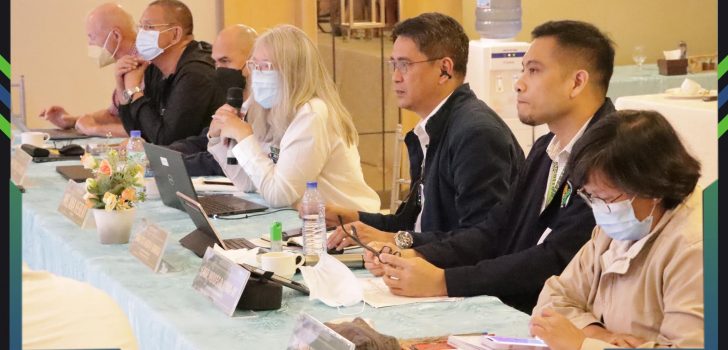
World Bank team visits Visayas for discussions on institutional and fiduciary strengthening of DA projects
To ensure smooth and efficient implementation of subprojects with focus on transparency and elimination of corruption is the Department of Agriculture – Philippine Rural Development Project’s core.
With that in mind, our partners from the World Bank have visited the Visayas region to further strengthen the institutional implementation procedures by sifting through guidelines and sufficient and relevant policies enough to ensure that good implementation is continued.
“Given the very huge exposure of the World Bank to the Department of Agriculture, we want to start especially the new projects in the pipeline – by ensuring that we are building on from the good lessons and good experiences of the ongoing activities. We also would like to assess if there are gaps and areas we need to improve on in terms of the whole institutional implementation procedures,” said Senior Agriculture Economist and World Bank Task Team Leader Ma. Teresa Quinones.
“Ana Pinto- Hebert, our Intuitional Strengthening expert would review with us and would update us on what are the institutional strengthening factors, what are the things we need to look at, what are the red flags, and what are the potential risks that are commonly found in projects. Moreso, in big investments, just like what you have right now, and what we will have once the three projects in the pipeline are approved,” she added.
Four partner local government units from Aklan, Antique, Iloilo and Negros Occidental have joined the World Bank, PSO Visayas and RPCO 6 during the conduct of the Technical Discussions on Institutional and Fiduciary Strengthening for DA Projects in the World Bank Pipelines on January 16,2023 in Iloilo City. Meanwhille, partners from RPCO 7 and RPCO 7 are connected virtually to join the discussion.
“The PRDP Scale-up which is the biggest project among the three, is in preparation stage. So, it is important that during preparation, we revisit our guidelines and procedures, and reassess what are still relevant and what are those that are needing strengthening up or updating,” Quinones stressed.
To back this, World Bank Institutional Strengthening Specialist Anna Pinto-Hebert discussed topics highlighting fraud and red flags in procurement in terms of subproject implementation.
“I know that PRDP has its policies and procedures and everybody is familiar with them. Now, I wanted to link that to the World Bank’s own policy framework,” said Pinto- Hebert.
In the later part, participants were divided into groups for a workshop facilitated by Herbert herself. Groups comprised of representatives from LGUs, PSO and RPCO then presented their outputs identifying red flags and solutions to situations given by Hebert.


